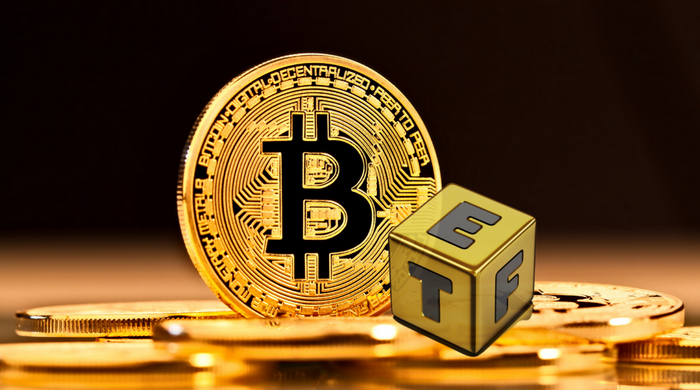-
 Bitcoin
Bitcoin $85,150.9945
2.07% -
 Ethereum
Ethereum $1,637.4391
4.76% -
 Tether USDt
Tether USDt $0.9997
0.01% -
 XRP
XRP $2.1543
6.63% -
 BNB
BNB $595.6674
1.72% -
 Solana
Solana $132.6259
9.02% -
 USDC
USDC $0.9998
-0.01% -
 Dogecoin
Dogecoin $0.1669
4.59% -
 TRON
TRON $0.2458
0.96% -
 Cardano
Cardano $0.6577
5.45% -
 UNUS SED LEO
UNUS SED LEO $9.3395
-0.46% -
 Chainlink
Chainlink $13.1172
3.74% -
 Avalanche
Avalanche $20.4371
6.98% -
 Sui
Sui $2.3365
6.87% -
 Stellar
Stellar $0.2453
4.66% -
 Toncoin
Toncoin $2.9777
2.30% -
 Hedera
Hedera $0.1753
4.20% -
 Shiba Inu
Shiba Inu $0.0...01249
2.66% -
 Bitcoin Cash
Bitcoin Cash $342.7175
9.77% -
 MANTRA
MANTRA $6.3112
-1.57% -
 Litecoin
Litecoin $78.4417
3.12% -
 Polkadot
Polkadot $3.7131
4.30% -
 Hyperliquid
Hyperliquid $16.5698
6.75% -
 Dai
Dai $1.0000
0.01% -
 Bitget Token
Bitget Token $4.4001
1.96% -
 Ethena USDe
Ethena USDe $0.9991
0.03% -
 Pi
Pi $0.7262
15.70% -
 Monero
Monero $208.5603
-0.01% -
 Uniswap
Uniswap $5.4933
5.27% -
 OKB
OKB $53.8965
1.39%
Who are the regulatory agencies for a Bitcoin ETF?
Regulatory agencies, such as the SEC and CFTC, consider factors like transparency, volatility, and custody when evaluating the approval of Bitcoin ETFs.
Oct 19, 2024 at 03:54 pm

Regulatory Agencies for a Bitcoin ETF
- U.S. Securities and Exchange Commission (SEC): The SEC is the primary regulator for securities exchanges in the United States. It has the authority to approve or disapprove new ETF listings, including Bitcoin ETFs.
- Commodity Futures Trading Commission (CFTC): The CFTC regulates futures contracts and options on futures contracts. Bitcoin futures ETFs would fall under the jurisdiction of the CFTC.
- Financial Industry Regulatory Authority (FINRA): FINRA is a self-regulatory organization that oversees the brokerage industry. It would be responsible for monitoring the activities of Bitcoin ETFs and ensuring they comply with industry regulations.
Factors Considered by Regulatory Agencies When Evaluating a Bitcoin ETF
- Transparency and Price Discovery: Regulators want to ensure that Bitcoin ETFs provide accurate and transparent information about the underlying asset and its price.
- Market Volatility: Bitcoin is known for its high volatility, so regulators will consider the risks associated with investing in a Bitcoin ETF.
- Custody and Security: The safekeeping of Bitcoin is crucial, so regulators will require Bitcoin ETFs to have robust custody solutions.
- Compliance with AML/KYC Regulations: Regulators will ensure that Bitcoin ETFs comply with anti-money laundering and know-your-customer regulations to prevent illicit activities.
Current Status of Bitcoin ETFs
As of April 2023, no Bitcoin ETFs have been approved by U.S. regulators. The SEC has delayed or rejected several applications, citing concerns about the volatility and maturity of the Bitcoin market. However, the CFTC has approved several Bitcoin futures ETFs.
Disclaimer:info@kdj.com
The information provided is not trading advice. kdj.com does not assume any responsibility for any investments made based on the information provided in this article. Cryptocurrencies are highly volatile and it is highly recommended that you invest with caution after thorough research!
If you believe that the content used on this website infringes your copyright, please contact us immediately (info@kdj.com) and we will delete it promptly.
- Ripple (XRP) to Pay Downsized $50M SEC Fine Using Its Own Token
- 2025-04-13 08:00:12
- XRP Price Prediction: If Bitcoin Hits $200,000, XRP Could Be Worth $4.96
- 2025-04-13 08:00:12
- MUTM is currently priced at $0.025
- 2025-04-13 07:55:12
- U.S. President Donald Trump Signed an Executive Order to Establish a Strategic Bitcoin Reserve and a Digital Asset Stockpile
- 2025-04-13 07:55:12
- Billionaire Tim Draper Reminds Market of His Position on Unconventional Emerging Technologies
- 2025-04-13 07:50:12
- Spanish Authorities Dismantle AI-Powered Crypto Scam Ring That Defrauded Victims of €19M
- 2025-04-13 07:50:12
Related knowledge

What is the difference in returns between long-term holding of a Bitcoin ETF and holding Bitcoin directly?
Apr 09,2025 at 04:15am
When considering the difference in returns between long-term holding of a Bitcoin ETF and holding Bitcoin directly, it's essential to understand the nuances and factors that affect each investment option. Both approaches have their unique advantages and potential drawbacks, which can significantly impact the overall returns over time. Understanding Bitc...

How is the "roll cost" of a futures Bitcoin ETF generated?
Apr 08,2025 at 01:22pm
The 'roll cost' of a futures Bitcoin ETF is a critical concept for investors to understand, as it directly impacts the performance of the ETF. In this article, we will delve into the mechanics of how the roll cost is generated, exploring the underlying processes and factors that contribute to this cost. Understanding Futures ContractsFutures contracts a...

How can the premium or discount of a Bitcoin ETF be narrowed through an arbitrage mechanism?
Apr 09,2025 at 12:07am
Arbitrage mechanisms play a crucial role in narrowing the premium or discount of a Bitcoin Exchange Traded Fund (ETF). Understanding how these mechanisms work can provide valuable insights into the dynamics of Bitcoin ETFs and their relationship with the underlying asset. This article will delve into the specifics of how arbitrage can be used to align t...

What factors affect the bid-ask spread of a Bitcoin ETF?
Apr 08,2025 at 08:50pm
The bid-ask spread of a Bitcoin Exchange Traded Fund (ETF) is a critical metric that investors and traders closely monitor. It represents the difference between the highest price a buyer is willing to pay (bid) and the lowest price a seller is willing to accept (ask). Several factors influence this spread, and understanding them can help investors make ...

How is the seed capital of a Bitcoin ETF used?
Apr 10,2025 at 02:15pm
The seed capital of a Bitcoin ETF plays a crucial role in the establishment and operation of the fund. This initial investment is used to create the fund's underlying assets, manage operational costs, and ensure the ETF can start trading on an exchange. Understanding how this seed capital is utilized provides insight into the mechanics of Bitcoin ETFs a...

What is the difference between "physically backed" and "synthetic" Bitcoin ETFs in terms of holding assets?
Apr 10,2025 at 04:56pm
Bitcoin Exchange Traded Funds (ETFs) have become a popular way for investors to gain exposure to the cryptocurrency market without directly owning the underlying asset. There are two primary types of Bitcoin ETFs: physically backed and synthetic. Understanding the differences between these two types, particularly in terms of how they hold assets, is cru...

What is the difference in returns between long-term holding of a Bitcoin ETF and holding Bitcoin directly?
Apr 09,2025 at 04:15am
When considering the difference in returns between long-term holding of a Bitcoin ETF and holding Bitcoin directly, it's essential to understand the nuances and factors that affect each investment option. Both approaches have their unique advantages and potential drawbacks, which can significantly impact the overall returns over time. Understanding Bitc...

How is the "roll cost" of a futures Bitcoin ETF generated?
Apr 08,2025 at 01:22pm
The 'roll cost' of a futures Bitcoin ETF is a critical concept for investors to understand, as it directly impacts the performance of the ETF. In this article, we will delve into the mechanics of how the roll cost is generated, exploring the underlying processes and factors that contribute to this cost. Understanding Futures ContractsFutures contracts a...

How can the premium or discount of a Bitcoin ETF be narrowed through an arbitrage mechanism?
Apr 09,2025 at 12:07am
Arbitrage mechanisms play a crucial role in narrowing the premium or discount of a Bitcoin Exchange Traded Fund (ETF). Understanding how these mechanisms work can provide valuable insights into the dynamics of Bitcoin ETFs and their relationship with the underlying asset. This article will delve into the specifics of how arbitrage can be used to align t...

What factors affect the bid-ask spread of a Bitcoin ETF?
Apr 08,2025 at 08:50pm
The bid-ask spread of a Bitcoin Exchange Traded Fund (ETF) is a critical metric that investors and traders closely monitor. It represents the difference between the highest price a buyer is willing to pay (bid) and the lowest price a seller is willing to accept (ask). Several factors influence this spread, and understanding them can help investors make ...

How is the seed capital of a Bitcoin ETF used?
Apr 10,2025 at 02:15pm
The seed capital of a Bitcoin ETF plays a crucial role in the establishment and operation of the fund. This initial investment is used to create the fund's underlying assets, manage operational costs, and ensure the ETF can start trading on an exchange. Understanding how this seed capital is utilized provides insight into the mechanics of Bitcoin ETFs a...

What is the difference between "physically backed" and "synthetic" Bitcoin ETFs in terms of holding assets?
Apr 10,2025 at 04:56pm
Bitcoin Exchange Traded Funds (ETFs) have become a popular way for investors to gain exposure to the cryptocurrency market without directly owning the underlying asset. There are two primary types of Bitcoin ETFs: physically backed and synthetic. Understanding the differences between these two types, particularly in terms of how they hold assets, is cru...
See all articles
























































































